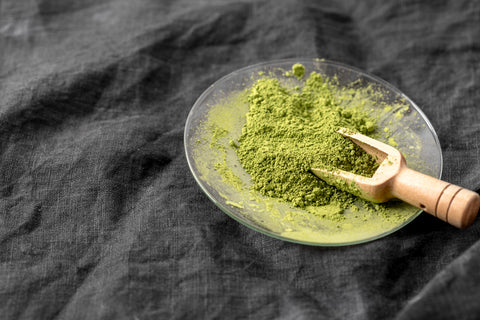Collagen is a protein that plays a crucial role in the health of various tissues in our body, including the gut.
Collagen is associated with benefits such as skin health and joint support, although there is also research to show that it has a positive impact on gut health. Research in this area is limited, but it is thought that collagen supplements may support gut health through their impact on the gut lining and the gut microbiome.
The gut, or gastrointestinal tract, is a complex system responsible for digestion, nutrient absorption, and immune function.
Our gut is lined with a layer of cells called epithelium, which forms a protective barrier.
When this barrier is agitated or inflamed, it can lead to many different gastrointestinal issues and other related health problems.
Collagen provides structural support to the gut lining. It prevents the leakage of undigested food particles, toxins, and bacteria into the bloodstream.
This is often referred to as "leaky gut syndrome" which can contribute to inflammation, food sensitivities, autoimmune disorders and other health issues.
Factors That Influence Gut Health
Maintaining a healthy gut is essential for general well-being. Here are some key factors that can impact the health of your gut:
- Diet: The food you consume plays a significant role in gut health. A diet rich in fibre from fruits, vegetables, whole grains, and legumes promotes a diverse gut microbiome and supports healthy digestion. On the other hand, diets high in processed foods, added sugars, unhealthy fats, and low in fibre can negatively affect gut health by reducing beneficial bacteria and promoting inflammation.
- Gut microbiome: The gut microbiome is the community of tiny living things, like bacteria, viruses, and fungi, that live in your digestive tract. A diverse and balanced gut microbiome is crucial for optimal immune function, digestion, nutrient absorption and overall health. Factors that can influence the gut microbiome include diet, antibiotic use, stress, infections, and environmental exposure.
- Antibiotics and medications: While antibiotics are valuable for treating bacterial infections, they can also disrupt the balance of beneficial bacteria in the gut. Overuse or improper use of antibiotics can lead to a decrease in beneficial bacteria, potentially causing digestive issues and increasing the risk of antibiotic-resistant infections. Other medications, such as nonsteroidal anti-inflammatory drugs (NSAIDs), proton pump inhibitors (PPIs), and certain antidepressants may also impact gut health.
- Stress: Psychological and emotional stress can affect gut health through the gut-brain axis, a two-way system between the gut and the brain. Stress can alter gut function, increase inflammation and disrupt the gut microbiome. Chronic stress has been associated with conditions such as irritable bowel syndrome (IBS) and inflammatory bowel disease (IBD).
- Physical activity: Regular physical activity promotes good gut health. Exercise helps maintain healthy gut function, reduces inflammation and supports a diverse gut microbiome. Sedentary behaviour can negatively impact gut health and contribute to digestive issues.
- Sleep: Sufficient sleep is crucial for overall health, including gut health. Disrupted sleep patterns and inadequate sleep have been associated with changes in gut composition, increased gut permeability and inflammation.
- Environmental factors: Environmental factors, such as exposure to pollutants, toxins, and certain chemicals, can influence gut health. These factors may disrupt the gut barrier, alter the gut microbiome and contribute to inflammation and digestive issues.
- Hydration: Maintaining adequate hydration is important for gut health. Sufficient water intake supports regular bowel movements, prevents constipation, and helps transport nutrients through the digestive system.
- Chronic diseases and conditions: Certain chronic diseases and conditions, such as autoimmune disorders, inflammatory bowel diseases (IBD), celiac disease and food intolerances, can significantly impact gut health. Managing these conditions through proper medical care and dietary adjustments is crucial for supporting gut health.

To promote a healthy gut, it is important to focus on a balanced diet, adequate hydration, regular exercise, stress management techniques, and getting enough sleep. Additionally, minimising unnecessary antibiotic use, properly managing chronic conditions and reducing exposure to environmental toxins.
Supplementing or consuming collagen-rich foods can benefit gut health in several ways:
Improved gut barrier function
Collagen contains specific amino acids, such as proline and glycine, which are essential for repairing and rebuilding the gut lining. These amino acids are necessary for the synthesis of collagen and other proteins that strengthen the intestinal barrier.
By strengthening the gut barrier, collagen may help reduce intestinal permeability, also known as "leaky gut" and the associated inflammation.
Enhanced digestion and nutrient absorption
Collagen helps to promote the production of stomach acid and enzymes, supporting the breakdown of food and the absorption of nutrients. This can aid in relieve digestive discomfort and optimising nutrient availability.
Soothing effects on the digestive tract
Chronic inflammation in the gut can contribute to various gastrointestinal conditions. Collagen contains specific amino acids, such as glycine, proline, and glutamine, which are involved in supporting a healthy inflammatory response.
By providing amino acids collagen supplements may help reduce gut inflammation and support the healing of the intestinal lining.
Gut microbiome support
The gut microbiome, composed of trillions of beneficial bacteria, plays a crucial role in digestive and immune health.
Research suggests that collagen supplementation has a positive influence on the gut microbiome by promoting the growth of beneficial bacteria and supporting the balance between good and bad bacteria.
To incorporate collagen for gut health, you can consider the following options:
Collagen supplements
Collagen peptides are available as dietary supplements in powder or capsule form. These supplements are typically hydrolysed, meaning the collagen is broken down into smaller peptides, making it easier for the body to absorb.
Collagen-rich foods
Include collagen-rich foods in your diet, such as bone broth, which is a concentrated source of collagen and other nutrients beneficial for gut health. Additionally, animal-derived foods like skin, tendons, and cartilage.
Vitamin C contributes to collagen formation, so it may be useful to take Vitamin C supplements too.
Balanced diet
Ensure you consume a varied and balanced diet that supports overall gut health. Incorporate plenty of fibre-rich foods, such as fruits, vegetables, legumes, and whole grains, to provide nourishment for your gut microbiome.
Consult a healthcare professional
If you have specific gut health concerns or medical conditions, it is always advisable to consult a healthcare professional before introducing any new supplements or making significant changes to your diet.
When considering collagen supplements for gut health, here are a few factors to keep in mind:
- Choose quality supplements: Look for supplements from reputable brands that prioritise quality and transparency.
- Dosage and duration: The optimal dosage of collagen supplements for gut health is not yet well-established. It is recommended to follow the dosage instructions provided by the manufacturer or consult with a healthcare professional to determine the appropriate dosage for your specific needs.
- Individual variations: Every individual's response to collagen supplements may vary. Some people may experience noticeable improvements in gut health, while others may not observe significant changes. It's important to listen to your body and assess how collagen supplementation affects you personally.
- Comprehensive approach: Supplements should be seen as part of a comprehensive approach to gut health. Incorporate them into a healthy lifestyle that includes a balanced diet, regular exercise, stress management and adequate hydration.
Related Articles
- Leaky Gut Syndrome (LGS) – HealthAid
- Diet & Nutritional Supplements to Improve Gut (Colon) Health – HealthAid
- Digestive Problems and How to Cope with Them – HealthAid
Sources
- Best Collagen-Rich Foods and Collagen-Boosting Foods - Dr. Axe (draxe.com)
- Gut Bacteria Benefits: How to Improve Digestive Health - Dr. Axe (draxe.com)
- Hydrolyzed Collagen Peptides: the Superior Collagen Supplement - Dr. Axe (draxe.com)
- Top Collagen-Destroying Foods Damaging Your Joints and Skin - Dr. Axe (draxe.com)
- Bone Broth Benefits, Nutrition Facts and How to Make It - Dr. Axe (draxe.com)
- 4 Steps to Heal Leaky Gut and Autoimmune Disease | GreenMedInfo
- The Root of Autoimmune Disease can be Found in the Gut | GreenMedInfo
- Top 10 Anti-Aging Foods for Skin, Brain, Muscle, and Gut Health (healthline.com)
Images: Image by wayhomestudio on Freepik Image by wayhomestudio on Freepik
Any information or product suggested on this website is not intended to diagnose, treat, cure, or prevent any medical condition. Never disregard medical advice or delay in seeking it because of something you have read on this website. Consult your primary healthcare physician before using any supplements or making any changes to your regime.




